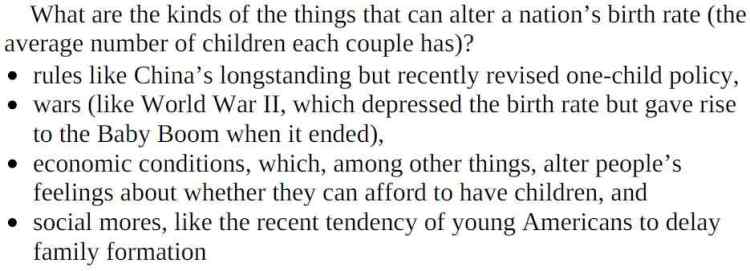The economy also moves into the long term and short-term cycle as an industry, stock market and everything else moves which are explained further.
Long-Term cycle
We know that the growing economy graph going upwards in the long term but it has short-term ups and downs.


Long term straight line is made up of small cyclical ups and downs of the economic cycle of recession and recovery, slowdown and prosperity. These are part of any economy.
Everyone gets agree with the above point but we also need to understand that long-term trends also having a cyclical move as same as the short term. Here we also need to put a focus.


We can see that the GDP of India has moved from US$ 0.04 trillion to US$ 2.72 trillion which shows long-term up moves but if we see shorter-term momentum of growth rate than it shows highly fluctuating with ups & downs.
When Population growing it will lead to more consumption and that encourages more production. For producing more, companies need more working hours and that will be converted into more GDP.
So, population growth remains key to the growth of an economy. If growth converts to degrowth then economy starting to shrink.

When the growth of population changes, it affects the GDP growth for a longer period of time. When a child gets born then it takes around 20-22 years for a child to become an employee. Also, migration from other countries replaces the birth rate of the country. Migration from other countries also enhances consumption and productivity which resulted in growth in GDP.

Another factor that affects GDP growth is productivity. As productive can be raised despite any growth in the population, then GDP also grows or getting slow with the slower or declining in productivity. We have seen the growth of productivity when human labour replaced by machines, new automobiles, electricity, and computer has introduced. But these all have taken decades of time to affect the GDP. So, for the year to year productivity remains steady. This is not a change that will come overnight and disrupt everything rather it will slowly create changes over a long period.
The aspiration to live a better life encourages people to work hard and produce more. Educational people contribute more to the economy but if people do not like to be educated then it will affect negatively the economy. Such negative effects need to be overcome by the migrated.
Technologies that introduce new businesses and replaced the older. Also, it affects employment.
Automation might have an effect on reducing employment, and thus income and consumption will also decline which again affects the GDP growth.
Globalization provides a chance to export to the other economies which enhances the GDP growth. But the impact negative to the economy which only relies on the import from the other economies.
Short-term cycle
We have seen that many factors take time to affect a long-term trend of GDP. Then why short-term fluctuations occur and why we need to focus on it?
There are factors that cause short-term fluctuations in GDP growth. We always need to focus on those factors to get an edge to our investment. The actual investment game is to getting superior returns than average. We should not focus on the correct forecast but should focus on the superior forecast.
Many of the economists extrapolate current trends and publish reports on it. Such information is available with every so that it does not add much value. Also, we do not get superior returns by doing the same what the majority is doing. It is easy to make any forecast on the excel sheet but it is very difficult to keep it near to reality.
Spending patterns of the individual affect the production of the companies and that has an impact on the GDP growth.
Similarly, companies feel that demand remains robust then they keep on producing more and more but what happens when demand does not come. These unsold goods added to the inventories and companies has to cut production until inventory does not come back at a normal level.
Recession in an automobile has impacted the inventories of OEMs

Few events also affect the performance of GDP such as war, changes in tax rate & trade barriers by government, cartels in the price of commodity, drought, flood, hurricane, and earthquake.
Superior forecast where we identify the deviation from the long-term trend and recent status of it. Identifying such deviation provides us with an edge. But identifying such is not an easy task and not all unconventional deviation also gets correct. We remember people for their correct unconventional prediction but they also have many failed predictions.
These all short-term factors affect GDP growth in a shorter time frame but that also helps us to get an edge into our investment. So that we require to have a keen understanding of all and focus on it for taking benefits.
Disclosure – Companies mentioned in the article are just for an example & educational purpose. It is not a buy/sell/ hold recommendation.
Read for more detail: Mastering The Market Cycle: Getting the odds on your side by Mr.Howard Marks
















